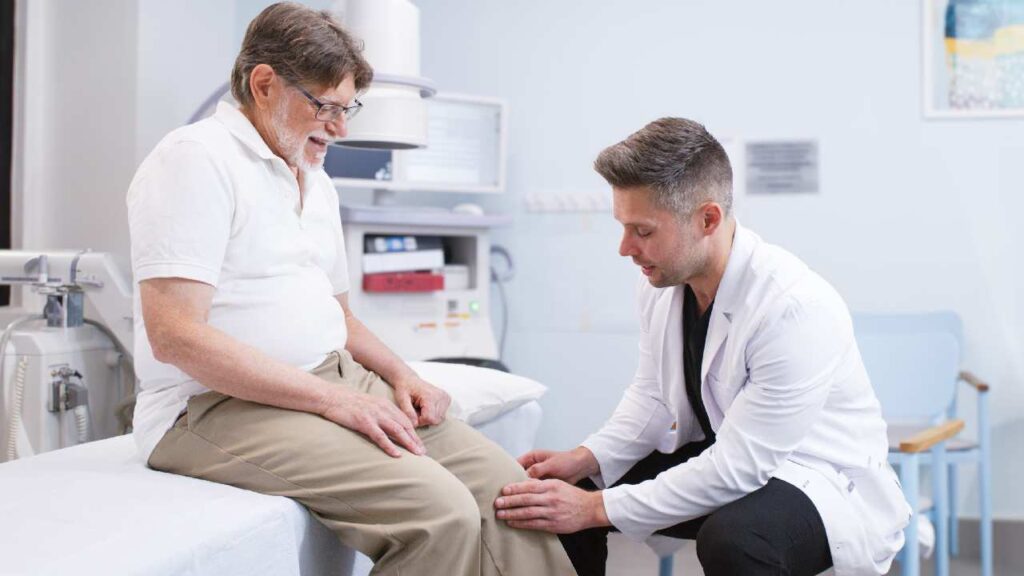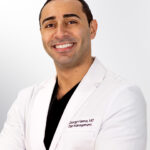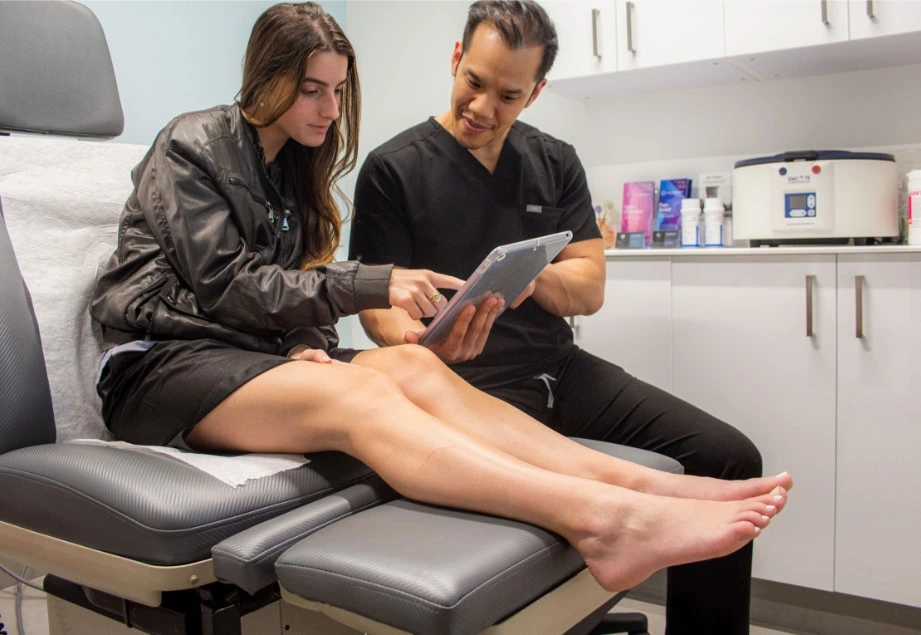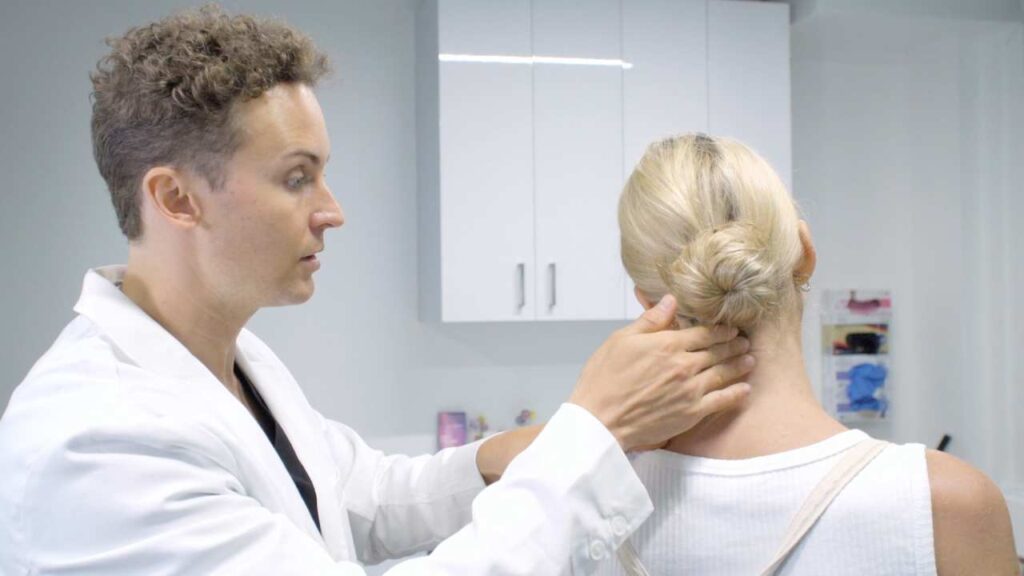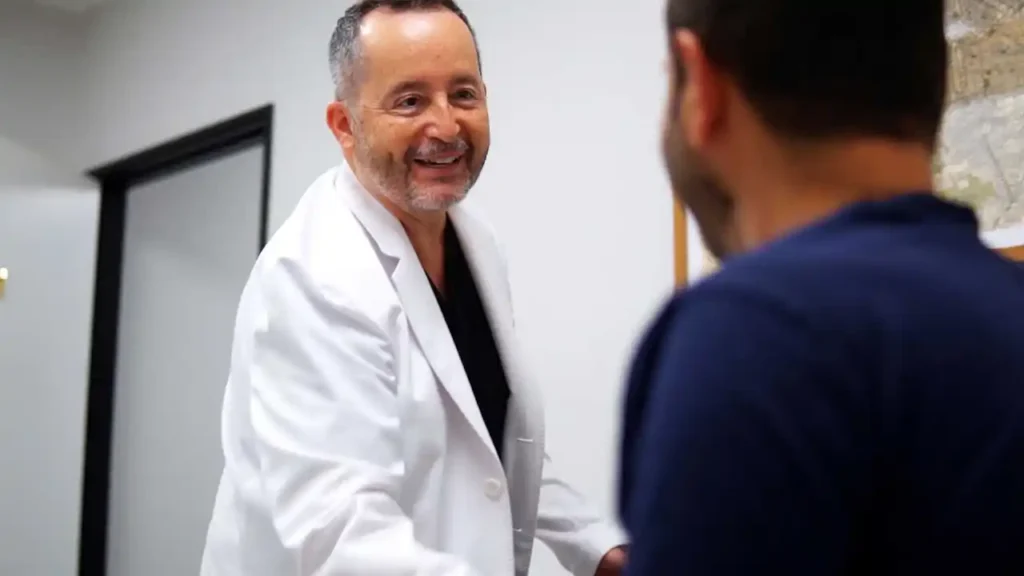This Is the Most Recommended Diet for Venous Insufficiency
Have you ever felt a dull, heavy ache in your legs after a long day at work? Maybe your ankles seem swollen, or you’ve noticed some unsightly spider veins creeping up. These could be early signs of venous insufficiency—a condition where the veins in your legs struggle to send blood back to your heart. Venous insufficiency can lead to varicose veins, leg ulcers, and other complications if not addressed promptly.
At VIP Medical Group, we’re here to help you manage venous insufficiency with a comprehensive approach that includes minimally invasive vein treatments and preventive strategies. While medical interventions are crucial, your diet plays a significant role in supporting vein health. This article will guide you through the most recommended diet for venous insufficiency to help you feel and look your best.
1. Prioritize Fiber-Rich Foods
A diet high in fiber can significantly benefit individuals dealing with venous insufficiency. Fiber aids in healthy digestion and prevents constipation, which can increase pressure on the veins. Straining during bowel movements is a lesser-known cause of varicose veins, as it puts extra stress on the veins in the lower body. Include foods such as:
- Whole grains like oats, quinoa, and brown rice
- Fruits like apples, pears, and berries
- Vegetables such as carrots, broccoli, and spinach
- Legumes like lentils, chickpeas, and black beans
2. Hydrate for Optimal Circulation
Staying hydrated is crucial for maintaining healthy veins. Dehydration can cause your blood to thicken, making it harder for your veins to pump blood efficiently back to your heart. This is particularly important if you are already experiencing symptoms of varicose veins or venous insufficiency. Tips for proper hydration:
- Aim for at least eight glasses of water per day.
- Include water-rich fruits and vegetables—watermelon, cucumber, and celery—in your meals.
- Limit dehydrating beverages like alcohol and caffeinated drinks.
3. Focus on Antioxidant-Rich Foods
Antioxidants protect your veins from damage caused by free radicals. These compounds also strengthen vein walls and improve blood flow, making them essential for a healthy diet for venous insufficiency. Incorporate the following into your diet:
- Berries (blueberries, strawberries, and raspberries)
- Dark leafy greens (kale, spinach, and Swiss chard)
- Nuts and seeds (almonds, walnuts, and sunflower seeds)
- Dark chocolate (at least 70% cocoa)
4. Add Foods High in Bioflavonoids
Bioflavonoids are plant compounds that improve vein elasticity and reduce swelling. These nutrients can play a significant role in preventing and managing the causes and symptoms of varicose veins. Adding bioflavonoid-rich foods to your diet can help maintain vein strength and function. Sources of bioflavonoids include:
- Citrus fruits (oranges, lemons, and grapefruits)
- Red and purple fruits (grapes, cherries, and plums)
- Onions and garlic
- Green tea
5. Opt for Lean Proteins
Proteins are essential for repairing and maintaining tissues, including the walls of your veins. Choosing lean protein sources ensures you get the necessary nutrients without consuming excess unhealthy fats. Omega-3 fatty acids, in particular, improve circulation and reduce inflammation, enhancing your overall vein health. Excellent protein choices include:
- Skinless poultry like chicken and turkey
- Fish rich in omega-3 fatty acids, such as salmon and mackerel
- Plant-based proteins like tofu, tempeh, and beans
- Low-fat dairy products
6. Limit Salt and Sugar Intake
Excess salt can lead to water retention and swelling in the lower legs, exacerbating symptoms of venous insufficiency. Similarly, a high sugar intake contributes to inflammation and poor circulation, thereby worsening the condition. Controlling salt and sugar intake can minimize swelling and promote better blood flow. To reduce salt and sugar:
- Cook with fresh herbs and spices instead of salt.
- Choose unsweetened or low-sugar options for snacks and drinks.
- Read food labels to avoid hidden sodium and sugar.

7. Maintain a Healthy Weight
Excess weight increases pressure on your veins, making it harder for blood to flow back to the heart. Effective weight management through a balanced diet and regular exercise is critical for both preventing and managing venous insufficiency. Losing even a small amount of weight can significantly reduce vein-related symptoms and improve overall vascular health. Focus on:
- Portion control to avoid overeating
- A mix of macronutrients (carbohydrates, proteins, and fats)
- Regular physical activity to complement your diet
FAQs
What is the best diet for venous insufficiency?
The best diet for venous insufficiency includes plenty of fiber, antioxidants, bioflavonoids, and lean proteins. It also limits salt, sugar, and unhealthy fats. These dietary choices help improve circulation, reduce inflammation, and support overall vein health.
What causes varicose veins, and can diet help?
What causes varicose veins includes factors such as genetics, prolonged standing, obesity, and poor circulation. While diet alone cannot cure varicose veins, a healthy diet for venous insufficiency can reduce symptoms and prevent further progression.
Are vein treatments covered by insurance?
Yes, most venous insufficiency treatments are covered by medical insurance if deemed medically necessary. While spider veins are often considered cosmetic, treating the underlying varicose veins causes, such as venous insufficiency, is usually covered. Contact us to request free insurance verification to see if your vein treatment is eligible.
What is the best treatment for varicose veins?
The best treatment for varicose veins depends on the severity of your condition. Your varicose vein treatment options include sclerotherapy, endovenous laser ablation, radiofrequency ablation, and more. Our varicose vein doctors offer minimally invasive vein treatments tailored to your needs after a thorough diagnosis and evaluation.
Where can I find a vein treatment clinic?
You can find a vein treatment clinic at various locations across New York, Long Island, California, Maryland, and New Jersey. Learn about our vein treatments and schedule an appointment at a location near you.
At VIP Medical Group, our vein specialists are committed to helping you achieve better vein health through personalized care and evidence-based vein treatments. Incorporating the right dietary changes can complement our minimally invasive vein treatments to enhance your results. Visit your nearest vein clinics today to start your journey to healthier veins.

